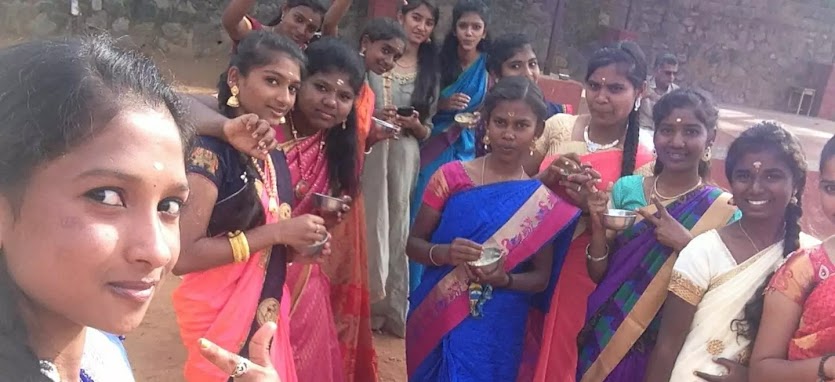We, the urbanites as we call, are always busy with our jobs, studies, ambitions, etc. that we never really get a chance to look around the surrounding that we are living in. Why at all should we even care to know about our surrounding, when everything that we ever imagine of is provided to us by the market?
At about 5am on Feb 8, 1901 a devastating earthquake shook Coimbatore and not a single building was left undamaged. Almost everyone was in deep trouble. The same occurred when the bubonic plague hit our city repeatedly from 1903 to 1925. Neither our jobs and studies nor the certificates that we hold in our hands as 10th, 12th pass, etc. are going to save us from these natural disasters unless until we know about the place that we are living in.
So, when I was entering 9th grade all these thoughts were in my mind. I had two options; one, to go to an urban school where the children knew nothing about their environment and two, to go to a Tribal school where the children knew thoroughly about their environment. I chose Vidya vanam, where the majority of the children are from the tribal hamlets around Anaikatty.

Everyday to school, I used to travel through the thick and dense shrub forests of Anaikatty. I thought, by simply traveling through the forests and being with my tribal friends, would just make the distance between myself and the natural environment vanish. But something in my mind kept saying that this was not enough. So, I thought of documenting the flora and fauna of this forest as I had done before around the Noyyal river, the previous year. I started noticing that the forest route through which I was traveling to school had so many bridges and I was curious to know about these streams. So, I traced all the streams in the forest on the map and created a 3D digital model of it. Thus, I learnt that these streams join together to form the long meandering Bhanvani river from which Coimbatore city happen to receive its drinking water supply. As my work proceeded the distance between me and the nature, slowly started shrinking. I started to brood over the idea, as to how I could slowly start reducing my dependence on the market and the other modern institutions.
It is at this time I came across the nostalgic writings of my tribal friends about their past and their present. They cherish their lifestyle, rituals and ceremonies that connect them intricately with the wild around. They are saddened by the practices introduced in their life in the name of modernity by the non-tribal settlers, which is slowly eroding the deep millional bond between them and the mother nature around. But strangely they also think that the travel towards the so-called பட்டினப்பாலை is the progress.
Now the 300 years of industrial revolution has come to a sudden halt during this corona pandemic, world over. Global citizens are branded locally and there is a pressure and desire to go to one's own birthplace. Market the god, which we thought would save us from anything, remains shattered. The dire necessity to settle down in one’s own birthplace and to depend on it completely has forced us to know its dynamics and explore alternative sustainable lifestyles that depends on the market in the least.
We are no more global citizens today. We belong to the local.
It's time that we rethink about the meaning of progress.
பட்டினப்பாலை * (Pronounced as Pattinapalai) = City desert
குறிஞ்சிக்களம்* (Pronounced as Kurinjikkalam) = Forest space



Comments
Post a Comment